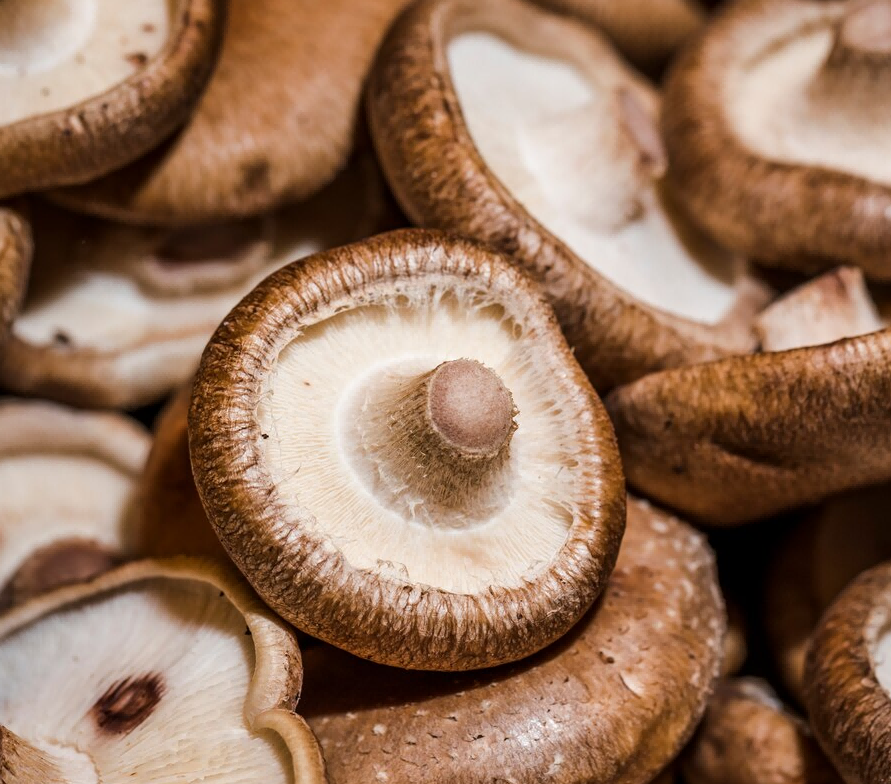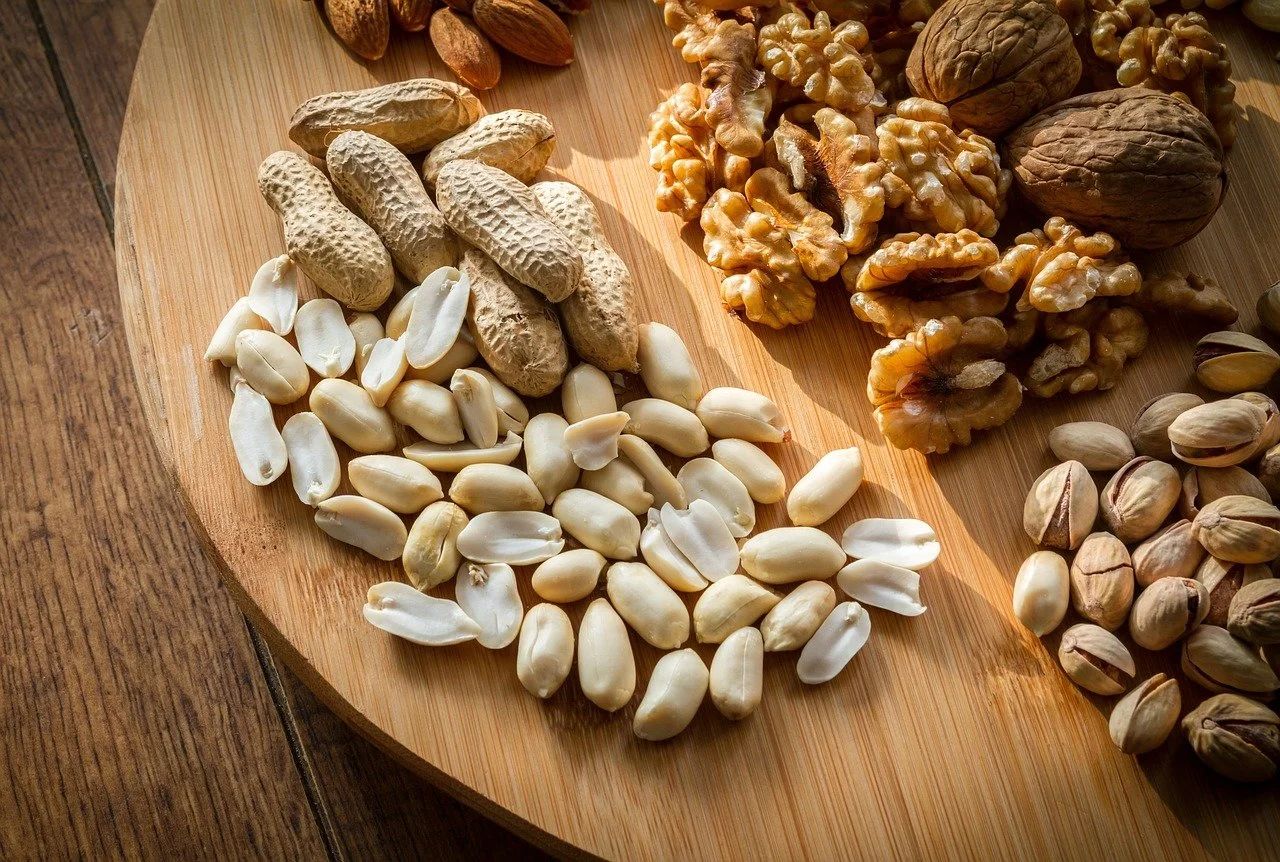Nowadays, under the fast-paced life and great social pressure, the incidence of depression is increasing year by year, and has become an epidemic disease in the 21st century, and the depression mood lasts too long will seriously disturb people's life and work, and bring a heavy burden to the family and society. According to the World Health Organization statistics, its incidence in the world in 2020 ranked second, and it is widely believed that the disability rate of depression is 23 times that of the general population. And diet and nutrition play a crucial role in maintaining good mental health.
What is depression?
Depression is a progressively debilitating illness, an affective mental disorder characterized by persistent low mood and loss of pleasure. Its etiology and pathophysiologic mechanisms are complex and involve a range of neuroendocrine alterations. Its episodes are associated with deficiencies of neurotransmitters such as 5-hydroxytryptamine, dopamine, norepinephrine, and γ-aminobutyric acid, the most important of which are the inhibitory effects of 5-hydroxytryptamine and norepinephrine reuptake. It is well known that 5-hydroxytryptophan is responsible for controlling many psychological and behavioral activities by regulating emotion, mood, sleep and appetite and thus.
What are the nutrients associated with depression?
EPA and Depression
EPA, or eicosapentaenoic acid, is the main component of fish oil. ePA belongs to the omega-3 family of polyunsaturated fatty acids, and is an essential nutrient for the human body. ePA has been shown to have a significant effect on the adjunctive treatment of depression, and studies have shown that low levels of dietary epoxypentaenoic acid can lead to neurological dysfunction. the mechanism of action of epoxypentaenoic acid to improve the symptoms of depression is through the reduction of the production of arachidonic acid derived prostaglandins, leading to brain-derived neurological dysfunction. which leads to decreased levels of brain-derived neurotrophic factors and/or altered blood flow in the brain.
EPA, as an essential fatty acid, cannot be synthesized by the body itself but can only be obtained from food, mainly from dietary fish such as mackerel, herring, salmon, tuna, sardines, marlin and whitefish.

Amino Acids and Depression
There are eight essential amino acids in the body that need to be obtained from food, and this includes tryptophan and tyrosine. The central nervous system has roughly 2% to 3% of tryptophan used to synthesize 5-hydroxytryptophan, which is closely related to a person's depressed mood. Proper supplementation of tryptophan can improve a patient's depressed mood. Tyrosine is also required for functional brain activity, and because of its neurostimulatory effects, it can directly affect mood and cognitive function.
Dairy products, shiitake mushrooms, sunflower seeds, sea crabs, black sesame seeds, soybeans, pumpkin seeds, meat floss, oily tofu, eggs, and fish fillets are rich in tryptophan and tyrosine.

Leptin and Depression
Leptin is a protein hormone secreted by adipose tissue, which mainly acts on the hypothalamus to reduce appetite and increase energy consumption. A large number of experimental studies and clinical investigations have shown that the occurrence of depression is closely related to changes in leptin levels, and leptin has been found to have antidepressant activity, and thus leptin, as an endocrine hormone, may play an important role in the regulation of depression.
Vitamins, vitamin-like and depression fat-soluble vitamins - vitamin K group and vitamin D, water-soluble vitamins - vitamin C, vitamin B6, vitamin B12 and folic acid can be directly or indirectly involved in the synthesis of 5-hydroxytryptamine or other neurotransmitters that modulate anxiety-depressive behavioral changes in the body. Vitamin-like - Coenzyme Q10 and polyphenols (and thujaplicin, resveratrol, caffeic acid), coenzyme Q10 can effectively assist in the relief of bipolar depression in the elderly. and thujaplicin is a potent nutrient in the treatment of anxiety and may be associated with its inhibition of cytokine production, reduction of oxidative stress, and plasma brain-derived neurotrophic factor levels. Resveratrol may produce antidepressant effects through activation of hippocampal and frontal cortical-derived neurotrophic factors. Caffeic acid exerts a protective effect on neurological function through antioxidant and reduces symptoms of stress, anxiety and dementia.
Food sources of B vitamins include animal offal, lean meat, beans, nuts, whole grains, and green leafy vegetables; vitamin C is mainly derived from fresh vegetables and fruits such as spinach, tomatoes, chili peppers, tangerines, oranges, and dates; and vitamin D and vitamin K are mainly derived from marine fish, animal liver, egg yolks, and lean meat. Coenzyme Q10 is derived from red meat, nuts, crude vegetable oils, spinach and broccoli. Polyphenol foods are mainly derived from cocoa beans, tea, soybeans, red wine, vegetables and fruits.

Coffee, Tea, Beverages and Depression Consumption of soft drinks increases the risk of depression, with those who drink >4 cans of soda drinks and fruit juices having a 30% and 51% increased risk of depression compared to non-drinkers. Drinking more yogurt may help reduce the risk of depression. Coffee and tea consumption may reduce the risk of depression. A prospective cohort study in Singapore showed that long-term (≥15 years) tea consumption reduced depression and anxiety in community-dwelling older adults.Meta-analysis found that high consumption of coffee (≥3 cups) and tea (≥1 cup) reduced the risk of developing depression.
Probiotics Probiotics can regulate gastrointestinal disorders, allergies, and have good anti-inflammatory properties that correct immune imbalances. But in recent years researchers have found that probiotics also have a significant effect on depression modulation, and a review of the available evidence published in BMJ Nutrition Prevention & Health suggests that probiotics, whether taken alone or in combination with prebiotics, may help to alleviate depression.
The Behavioral Biology Research Group at the Key Laboratory of Mental Health, Chinese Academy of Sciences, has been focusing on the relationship between gut microbes and health for several years, and they have newly discovered through a rat model of chronic restraint stress, that chronic restraint stress caused changes in the gut flora of rats, an increase in anxiety and depressive behaviors, and impaired memory, accompanied by physiological and biochemical abnormalities similar to the manifestations of depression. The researchers supplemented rats with Lactobacillus suis NS8, which not only regulated intestinal flora and improved anxiety, depression and memory, but also regulated physiological and biochemical indicators, with an overall effect superior to that of the commonly used antidepressant citalopram.
Mediterranean diet and depression
The Mediterranean diet originates from Spain, Italy and other Mediterranean regions, and consists of light and nutrient-rich foods, including fruits, vegetables, nuts, legumes, cereals, moderate amounts of fish, meat, poultry and dairy products, edible oils based on rapeseed oil and olive oil, supplemented with moderate amounts of wine during meals. This healthy eating pattern reduces the risk of developing depression.
Fast food and depression
Studies have shown a positive correlation between “Western” dietary patterns and the risk of developing depression, which may be related to changes in the sources of fat in the Western diet, where many of the beneficial fats such as polyunsaturated fatty acids (PUFAs) and monounsaturated fatty acids (MUFAs) found in nuts, fish, and seeds have been replaced by trans fatty acids (TFAs) found in meats, butter, and mass-produced pastries and fast foods. Related.

Others
Diets rich in refined carbohydrates and sugars are also common factors leading to depression. Alcohol also has a strong depressant effect, while many minerals such as selenium, zinc, iron, copper and magnesium can play a role in improving depression, in addition to fresh fruits are also conducive to improving depression.
Exercise and depression for people suffering from depression or with a depressed mood, walking is the best exercise program. Because walking can make the body synthesize vitality awakening substances, so that the brain's 5-hydroxytryptamine, dopamine and norepinephrine to maintain the ideal level. Walking or jogging under the sunshine in the clear sky for 20-30mins every day, 5 days a week, and after insisting for a period of time, you will feel the symptoms of nervousness, anxiety, depression, disordered thinking, craving for food and less sleep, and fatigue and weakness will be gradually reduced.




